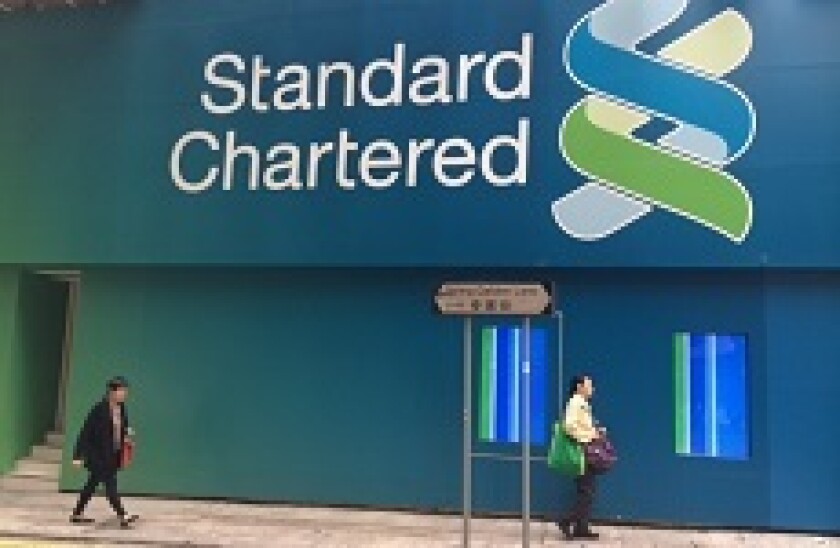Embattled seems to be the favoured adjective for journalists reporting on StanChart and its CEO, Peter Sands. The bank, which was for long a darling of the stock market, has suffered a severe reversal of fortune in the past two years. From a peak of £18.00 in March 2013, its share price has more than halved to £8.80. Bullish proclamations on its growth have been replaced with cost cutting exercises and higher provisions against bad loans.
Some of this should not be a surprise. When there’s a downturn in emerging markets, a bank that’s highly geared towards those areas is going to suffer.
But with the market increasingly discussing life after Sands, it's time for the bank to rethink its approach — in particular, the strategy of being an emerging markets bank that is headquartered in London.
Talk to StanChart bankers and it's clear they are a passionate bunch. They believe in the firm’s strategy and what it’s trying to achieve. But they are also at a loss as to why senior management is not based in one of its key regions of Africa, Asia or the Middle East. There is also frustration that some of the decision making by London reflects a lack of understanding of the nuances and realities of working in an emerging market.
Now this is a gripe that’s recognisable to anybody who works in the overseas office of a global institution. But when emerging markets count for around 90% of your operating profit and when most of your global business heads are based in Asia or the Middle East, it is almost perverse that your C-suite is tucked away in the City of London.
Asia would make sense as a new headquarters, as that is where the bank generates most of its income. And while there are reports that the bank wants someone with Asia experience to take over from Sands, StanChart’s board needs to do more than just pay lip service to this idea by having its new chief executive based in the region.
The bank should also consider changing its primary listing from London. Whatever the historical benefits were, being on the FTSE now yields more disadvantages than advantages. For a start, comparing StanChart to the likes of Royal Bank of Scotland and Barclays benefits no one — neither investors nor the bank. Those two firms have substantial UK retail operations, with smaller overseas corporate and investment banking operations. Even HSBC, which has the closest overlap with StanChart, has a huge UK retail operation in addition to its notable global presence.
Natural base
The result is that StanChart is pitched against banks that have completely different business cycles. While this can have advantages – as was seen during the financial crisis, when StanChart posted growth as its peers suffered – its share price is being disproportionately hurt now that EM is in a downturn.
A primary listing that pitched StanChart against peers going through a similar economic cycle would benefit its stock in good times and bad. The bank already has secondary listings in Hong Kong and India, so it could pick one of those. Alternatively, Singapore would be a natural base. It is already home to StanChart’s de-facto Asian headquarters, the bank has a strong retail base there and has already raised Singapore dollar-denominated Basel III capital.
A London listing also means that StanChart finds itself subject to the same onerous regulations as RBS et al but with less chance that the UK would bail it out should the worst happen. In fact, Moody’s says it is is unlikely that the UK government would extend help to the group due to StanChart’s lack of a UK retail business.
All of which means StanChart is going to find it harder to compete in its core markets as it goes up against lenders that are not subject to the same UK and European regulatory squeeze.
All eyes are now on StanChart’s board to see who it picks to lead the bank out of this difficult period. Understandably, it won’t want to pre-empt the strategy of any incoming CEO. But as well boosting returns in the face of slowing markets, candidates should be chosen for their vision of StanChart as a true emerging markets bank.

